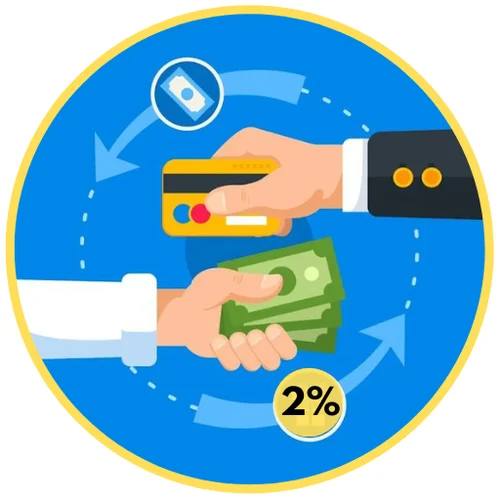Want to manage your credit cards better? Master the art of credit card management with expert tips. Handling several credit cards might seem overwhelming, but applying effective strategies can transform them into valuable tools for increasing financial adaptability. Holding various credit cards offers benefits like boosting your credit score, earning rewards, and accessing special perks. However, managing multiple cards can quickly become a financial strain without proper management. This article will outline 10 essential tips to help you navigate the use of multiple credit cards, enabling you to enjoy their advantages while avoiding common mistakes. Discover the best practices for effective credit card management in 2024. Simplify your credit card management and stay financially healthy.
Keep Track of Your Payment Due Dates
Managing multiple credit cards can be challenging, especially when tracking payment due dates. Timely payments are essential to avoid late fees, interest charges, and potential harm to your credit score.
Tip: Set reminders on your smartphone or use a calendar to keep tabs on when each payment is due. Alternatively, you might want to establish automatic payments for at least the minimum amount to ensure you don’t miss any deadlines.
Benefit: Adhering to due dates helps prevent late fees and penalties, which can add up quickly and adversely impact your credit.
Monitor Your Spending Across All Cards
Keep an Eye on Your Spending Across All Cards With several credit cards, it can be challenging to monitor your spending patterns. Without careful attention, you might accumulate debt across multiple cards without realizing it.
Tip: Utilize a budgeting application or a spreadsheet to track your expenditures on each card. Many apps have features that automatically categorize your spending, helping you see where your money goes.
Benefit: Monitoring your spending allows you to stick to your budget and prevents you from overspending.
Pay More Than the Minimum Payment
Although paying the minimum amount is better than nothing, it’s crucial to pay more than the minimum to avoid high interest fees. Paying just the minimum can result in years of debt repayment, particularly with multiple cards.
Tip: If possible, aim to pay off the balance in full each month. If that’s not an option, contribute as much as you can above the minimum payment to expedite your debt reduction.
Benefit: Paying above the minimum reduces interest costs and helps you pay off your debt faster, allowing for greater financial flexibility.
Focus on the Cards with the Highest Interest Rates
Concentrate on Cards with the Highest Interest Rates Different credit cards typically have varying interest rates. When dealing with several cards, it’s important to prioritize paying down those with the highest rates first. This strategy can lead to significant long-term savings.
Tip: Assess the interest rates tied to each of your credit cards. Focus on reducing the balances on the cards with higher rates while making minimum payments on the others.
Benefit: Paying off high-interest cards first lowers the total interest you owe, helping you achieve debt freedom more quickly.
Take Advantage of Rewards and Benefits
Many credit cards have rewards programs, such as cashback or travel points. You can strategically earn rewards using multiple cards based on your spending habits.
Tip: Assign specific cards for particular types of purchases. For example, use a card that offers 2% cashback on groceries for all related shopping and 3% on travel for your holiday expenses.
Benefit: Optimizing rewards programs can lead to considerable savings over time, whether through cashback or travel perks.
Avoid Using All Your Credit Limit
Maintaining a good credit score hinges on credit utilization. To protect your score, ensure your credit utilization ratio stays below 30% on each card. Going over 30% of your available credit can negatively impact your score.
Tip: Aim to spread your spending across various cards instead of maxing out one. This approach helps keep your utilization rate low and can improve your credit score.
Benefit: Maintaining a low credit utilization ratio can raise your credit score and show lenders that you manage credit responsibly.
Know When to Close a Card
In some cases, managing several credit cards necessitates closing an account. However, canceling a credit card can be detrimental to your credit score if it significantly reduces your total available credit or shortens your credit history.
Tip: Only close a card if it is no longer needed, and ensure you are not sacrificing a substantial portion of your total available credit. If you decide to close a card, keep the balances on your remaining cards low to maintain a healthy credit utilization ratio.
Benefit: Strategically closing credit cards can simplify your finances, but it’s essential to do so wisely to prevent harming your credit score.
Keep Track of Fees and Charges
Credit cards may have various fees, including annual fees, late payment penalties, and foreign transaction fees. When managing several cards, it’s easy to forget these fees and pay more than necessary.
Tip: Review your credit card statements regularly to avoid unnecessary fees. If you’re being charged an annual fee for a card you seldom use, consider downgrading or closing it.
Benefit: Keeping fees under control ensures you don’t waste money on charges that provide no benefit.
Review Your Credit Reports Regularly
Your credit report provides a snapshot of your financial health and credit history. It’s vital to check your credit report periodically to catch any inaccuracies or signs of fraud, especially when you have multiple credit cards.
Tip: You can receive a free credit report from each major credit bureau once a year. Use this opportunity to examine your report and dispute any errors affecting your credit score.
Benefit: Frequently checking your credit report helps confirm the accuracy of your credit score and allows you to resolve any issues early on.
Don’t Open Too Many New Cards at Once
While opening new credit cards can be beneficial, doing so too frequently can hurt your credit score. Every time you apply for a new card, a hard inquiry is made on your credit report, which can cause a temporary dip in your score.
Tip: Only apply for new credit cards when necessary, and space out applications to avoid hurting your credit score. If you’re looking for rewards or benefits, research cards carefully before applying.
Benefit: Managing the number of new cards you open helps maintain a stable credit score and avoids unnecessary hard inquiries.
Benefits of Managing Multiple Credit Cards
Managing multiple credit cards effectively offers several benefits:
- Increased Credit Limit: Multiple cards give you a higher total credit limit, which can help improve your credit score by lowering your credit utilization ratio.
- Better Rewards: Different cards offer rewards and perks, from cash back to travel points. By managing multiple cards, you can maximize these benefits.
- Financial Flexibility: Having several credit cards at your disposal provides more flexibility in managing your finances, especially in emergencies.
By adopting these strategies, you can effectively manage multiple credit cards, avoid common pitfalls, and maximize the benefits of your credit accounts.
Conclusion
Discover the top credit card management tips to help you reduce interest, manage payments efficiently, and leverage benefits for financial success. Handling multiple credit cards can be advantageous with a carefully planned approach. Keeping organized and consistently tracking your spending can maximize the benefits of your credit cards. It’s important to prioritize paying off cards with the highest interest rates first and to keep your credit utilization ratio low to boost your credit score. Regularly reviewing your accounts can help you catch costly mistakes and fully leverage the rewards programs offered. Borrowing responsibly, staying within your financial limits, and using credit wisely are vital steps toward securing a stable financial future. Improve your financial health with our credit card management tips.
Frequently Asked Questions (FAQs)
Q. How many credit cards should I have?
A. There’s no one-size-fits-all answer, but having enough credit cards to take advantage of different rewards programs and offers is generally advisable, but not so many that they become unmanageable. Three to five cards are typically sufficient for most people.
Q. Will having multiple credit cards hurt my credit score?
A. Having multiple credit cards can hurt your credit score if you don’t manage them properly, such as carrying high balances or missing payments. However, if used wisely, multiple cards can help improve your credit score by increasing your available credit and reducing your credit utilization ratio.
Q. Can I apply for a new credit card if I already have multiple cards?
A. Yes, you can apply for a new credit card, but ensure it aligns with your financial goals. Applying for too many cards at once may impact your credit score due to complex inquiries, so space out your applications.
Q. How do I know if I’m overspending on my credit cards?
A. Monitor your spending and compare it to your income and budget. You may be overspending if you cannot pay off your balance in full or have a high balance. Set a budget and avoid using credit for non-essential purchases.
Q. What should I do if I can’t make the minimum payments on my credit cards?
A. Contact your credit card issuer immediately if you need help to make the minimum payments. Many companies offer hardship programs or options for adjusting payment plans. Consider consolidating your debt with a personal loan to manage payments more efficiently.




